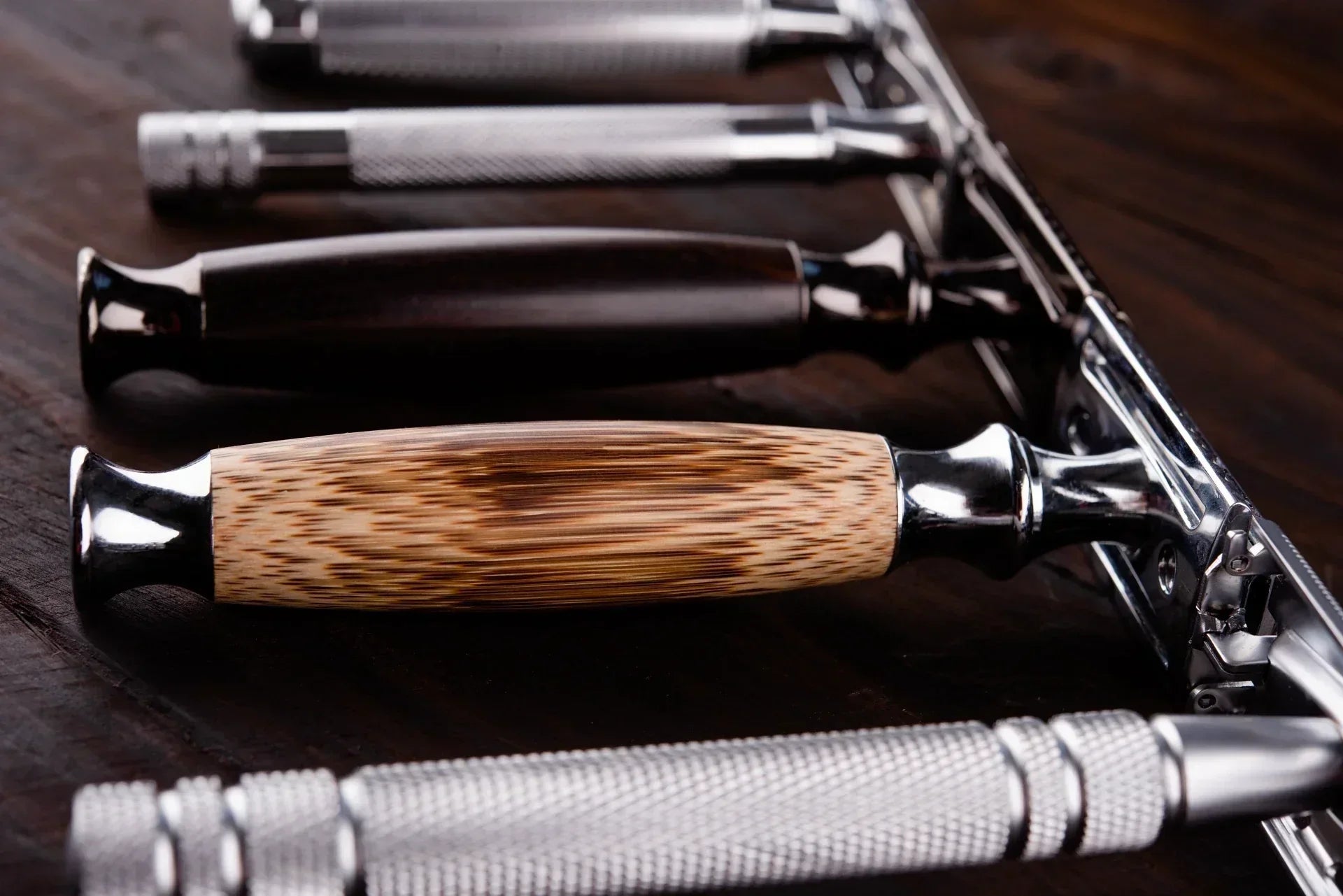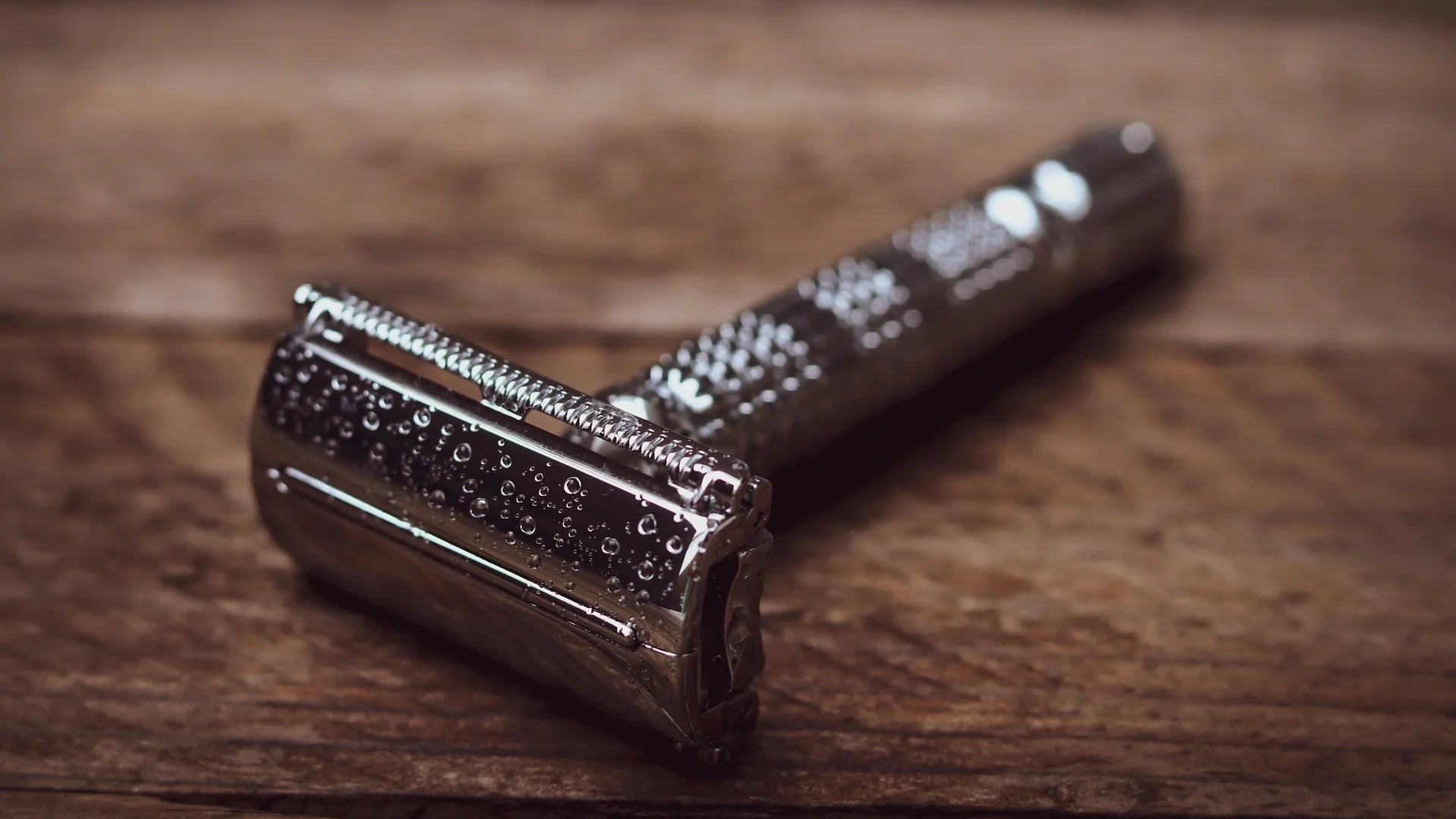
How to choose a safety razor : Buying guide and advice
The safety razor is a classic, elegant tool that is winning over more and more traditional shaving enthusiasts. Whether you're a beginner or a keen shaver, choosing the right safety razor can make all the difference to getting a quality, smooth and close shave. In this guide, we explain the essential criteria to consider when choosing the right safety razor for your needs.
1. The type of safety razor : open or closed ?
The first criterion to consider is the type of safety razor. There are two main types: closed head and open head.
- Closed-comb shaver : This is the most common model. The head is protected by a guard, which keeps the blade firmly in place and reduces the risk of cuts. It's perfect for beginners, offering a smoother, safer cut. It's also suitable for those with sensitive skin or who prefer a gentler shave.
- Open-comb razor : This model, also known as an ‘open’ razor, has no guard. This means the blade is more exposed, allowing for a more aggressive and precise cut. This type of shaver is recommended for experienced users or those with a denser beard who want a closer shave.
2. Shaver weight and balance
The weight andbalance of the shaver are key to a comfortable shave. A heavier razor gives better control over the cut and avoids pressure on the skin. It glides more easily over the face, reducing the risk of irritation or cuts.
- Light razors : Light models are often preferred by people with a lighter hand or who are looking for a more controlled shave.
- Heavy razors : Heavier models are ideal for those who prefer a more effective shave without too much pressure. They also provide greater stability, which is ideal for a close shave.
3. The razor handle
The razor handle plays a crucial role in shaving comfort. It's important to choose a model with a handle that fits the size of your hand and offers a comfortable grip.
- Handle materials : Safety razors can come with handles made of wood, resin, plastic, stainless steel or even aluminium. Materials such as stainless steel or brass are durable and offer excellent grip, while wooden or plastic handles can offer a more elegant, personalised look.
- Handle shape : It's essential to choose an ergonomic handle, with a shape that allows you to hold the razor easily, even with wet hands. Some models have anti-slip zones, ideal for preventing the razor from slipping while shaving.
4. Blade adjustment: adjustable or fixed ?
Some safety razors offer a blade adjustment feature, so you can tailor the cut to your preferences.
- Adjustable shavers : These models allow you to adjust the exposure of the blade, giving you the option of adapting the smoothness or aggressiveness of the shave. They are very practical for users who want to vary the aggressiveness of the shave depending on the areas of the face or their skin.
- Fixed shavers : Shavers with a fixed head have a constant blade exposure. These models are simpler to use and are particularly suitable for beginners or those who prefer a softer, less adjustable shave.
5. The price of a safety razor
The price of safety razors can vary considerably depending on the brand, materials used and features. Basic models can start at around €20 to €30, while higher-end models can cost €100 or more.
- Entry-level models : These shavers are often made from materials such as aluminium or durable plastics, and are ideal for beginners.
- Top-of-the-range models : Models made from stainless steel, brass, or other higher quality materials can offer longer life and better performance, but at a higher price.
6. Blade compatibility
Before you buy a safety razor, make sure it is compatible with standard safety razor blades, which are generally universal in shape. Most safety razors use standard blades, but there are a few more specific models. So check compatibility with the blades you use before making your purchase.
7. Reviews and recommendations
Don't hesitate to consult other users' opinions and ask for recommendations on forums or groups specialising in traditional shaving. This will enable you to find out about the experiences of other users and find shavers that have proved their worth in terms of performance and comfort.
Conclusion
Choosing a safety razor depends on your personal preferences, your shaving experience and your skin type. The key criteria to consider are the type of razor (open or closed), the weight and balance of the razor, the material and shape of the handle, the blade setting and, of course, the price. A well-chosen razor, with the right care, can give you years of pleasant, close shaves.







